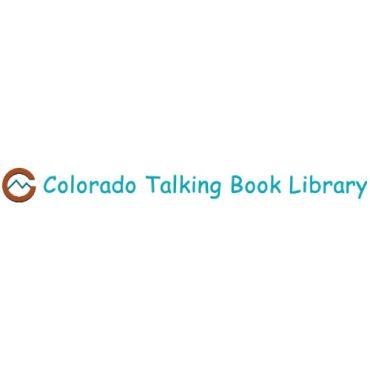School board elections happen every other year in Colorado, and they’re opportunities for communities to select people who will make important decisions about their local schools.
However, in many school district elections, less than a third of eligible voters vote.
Erica Meltzer, Bureau Chief at Chalk
beat Colorado, has written about the importance of school board elections and why people should vote in them.
Maeve Conran: Well, typically school board elections are off-year elections and don’t have the same type of voter turnout, and yet there is a lot at stake. So what would you say to listeners about what they need to be paying attention to when it comes to school board elections and even why they ne
ed to care about school board elections in the first place?
Erica Meltzer: Well, traditionally, our school board elections have been nonpartisan, and the intention, the ideal is that people would be focused on things like the budget, instruction, curriculum, how can they make sure the facilities are maintained to a high standard, that the district is run in a fiscally sound way.
And even sort of absent all the really heated politics that we’ve seen in the last couple of years, those are really important issues, having a well-functioning school system is important to the overall health of the community, so people should pay attention and should research the candidates
for that reason alone.
What we’ve seen in more recent years is something that political scientists talk about as the nationalization of local politics, where issues that people might hear about on Fox News or on MSNBC are showing up in our local school board elections.
And so if you care about how race and history are taught in your local schools, or if you care about how LGBTQ students are treated in school, it’s really important to pay attention to how candidates are talking about these issues and what you think they might do once they’re elected.
Maeve Conran: We are seeing some of those issues playing out in some of the school board races happening right now, particularly in rural parts of western Colorado. Can you talk a little bit about how some of these issues are playing out on a local level? I know there are certain standards that are being discussed or proposed to be introduced, American Birthright Standard around civics education, history education. Talk a little bit about how it’s actually manifesting itself at a local level.
Erica Meltzer: This is the way that we really see some of the political fractures in Colorado playing out in our local communities. The American Birthright Standard that you referred to for civics and history education are a conservative approach to teaching American history. They’ve been pretty widely criticized by social studies teachers in the profession and the state board of education explicitly rejected a proposal to base the state’s social studies standards on American Birthright.
Instead the state board of education, which I should note is a partisan body that is controlled by Democrats, they adopted a set of social studies standards that really aim to be much more inclusive to include a lot more perspectives in American history to make sure that diverse voices are represented.
But we also have a local control system in Colorado, and so we’ve seen local boards, for example in Woodland Park or in Garfield (RE-2), consider American Birthright Standard, and they’re adopting their own standards, which will have, you know, potentially a pretty big impact on how American history is taught.
We also see at the state level we have comprehensive sexual health standards that are also aimed to be very inclusive, and we’ve seen certain school boards decide ‘we’re not going to go along with that’, or ‘we’re just not going to teach sex ed at all in the schools because we don’t agree with that approach.’
We’ve also seen some school districts that previously had an opt-out approach, so they would send home a form (saying) ‘we’re going to be teaching sex ed next week, if you don’t want your child to participate, let us know.’ Some school districts are switching to an opt-in policy, this means the parents have to affirmatively agree that their child will receive sex ed and we all know these forms come home in the backpack crumpled up, people just don’t even see them, and so research shows that a lot fewer kids get access to education when it’s an opt-in system.
And so these are decisions that school boards make, and so if that’s something that you care about, you should pay attention to who is getting elected on these boards.
Maeve Conran: A lot of people who are voting in the school board races don’t have kids necessarily in the system. There are a lot of voters who maybe feel ‘this has got nothing to do with me.’ So why should people in communities, even if they do not have direct relationship with the local public schools, why should they be paying attention to and voting in school board elections?
Erica Meltzer: Well, just on really fundamental levels, the functioning of the school system has a lot of implications for the health of the community, I hate to be materialistic about it, but for your property values, for the economic health of your community, and then the schools are educating the next generation.
So in terms of how prepared are our young people going
to be to go out into a diverse world where they’re going to encounter people with a lot of different perspectives? How prepared are they going to be for college, for jobs? That affects all of us. And so it is really critical that we have well-functioning school systems.
We also sometimes see when boards become highly politicized, it does affect teacher morale and we’d see teacher turnover go up. And that can be really damaging to education.
Maeve Conran: What are some questions that voters should be asking school board candidates?
Erica Meltzer: There are certain questions just to sort of assess, ‘is this someone who has really engaged with what it means to be a school board member?’
So did you attend school board meetings before you became a candidate? Have you spent time with the board packet? What do you think the job of the school board is? And just to sort of understand do the candidates understand what their role is and what they’re taking on?
And I think the other thing is to probe some of the language that people use because like all politicians, you will hear school board members talk about things that how could you be against?
Of course, we all want great schools in every neighborhood. Of course, we all want high-quality teachers. Of course, we all want parents to have a say in their kid’s education, but these things that sound good to everyone can mean different things.
And so I think just that question, it’s a great question for journalists and it’s a great question for the public: ‘What do you mean by that?’
That’s a question that I think is worth asking on almost any issue.
Maeve Conran: Have you seen a change in who is typically running now for school boards over the last few years? As we mentioned earlier, these are often elections that don’t get as much attention, definitely don’t get as much voter turnout, but what about people who want to actually step into that space and run as a candidate, have there been any changes over the years as to who that typically is?
Erica Meltzer: So a lot of times a school board is the first type of elected office that someone has pursued. And I think we are seeing different organizations recruit and train people in how to run for school boards to reflect the agenda of those organizations.
And we see that to some degree across the political spectrum, but particularly in recent years, some national conservative organizations, Moms for Liberty is one example, have recruited and trained people to run for school boards, and I think that kind of national networking is somewhat of a new phenomenon.
Maeve Conran: Are you seeing any changes in how much money is being spent, say, in school board elections and where that money is coming from?
Erica Meltzer: So I’m based in Denver and we have seen some very expensive school board elections for a long time, that was typically along these teachers union supporters and education reform supporters, and that was a big dividing line that attracted a lot of money.
We are now seeing more money spent sometimes in rural communities that had never seen a lot of money in their school board elections and we are seeing more money come in from conservative organizations and we do see teachers unions continue to be a major player in school board elections.
Maeve Conran: Are there any particular school board races around the state that you’re paying attention to in terms of topics or candidates or just implications for the community?
Erica Meltzer: There were a number of boards that saw really conservative swings in 2021, Mesa County, Douglas County, Woodland Park, some other Colorado Springs school districts.
And so one thing we’re watching is in some cases voters have a chance to either reaffirm that choice or to have watched how those folks have governed the last two years and make a different choice.
So I think that’s something that’s going to be really interesting to see.
And then we’re seeing more money being spent in some of the suburban districts, I think Adams 12, Thompson on the Front Range.
I know that Montrose is seeing a very active school board election, it was a very interesting race two years ago.
And I think one thing we’re just looking to see is, is this conservative swing is sort of a longer term trend or are we going to start to see it come back the other way?
Bureau Chief Erica Meltzer covers education policy and politics and oversees Chalkbeat Colorado’s education coverage. Contact Erica at [email protected]. You can read Erica’s article Why school board elections matter and why you should vote.
This story was shared via Rocky Mountain Community Radio, a network of public media stations in Colorado, Wyoming, Utah and New Mexico including Aspen Public Radio.

















